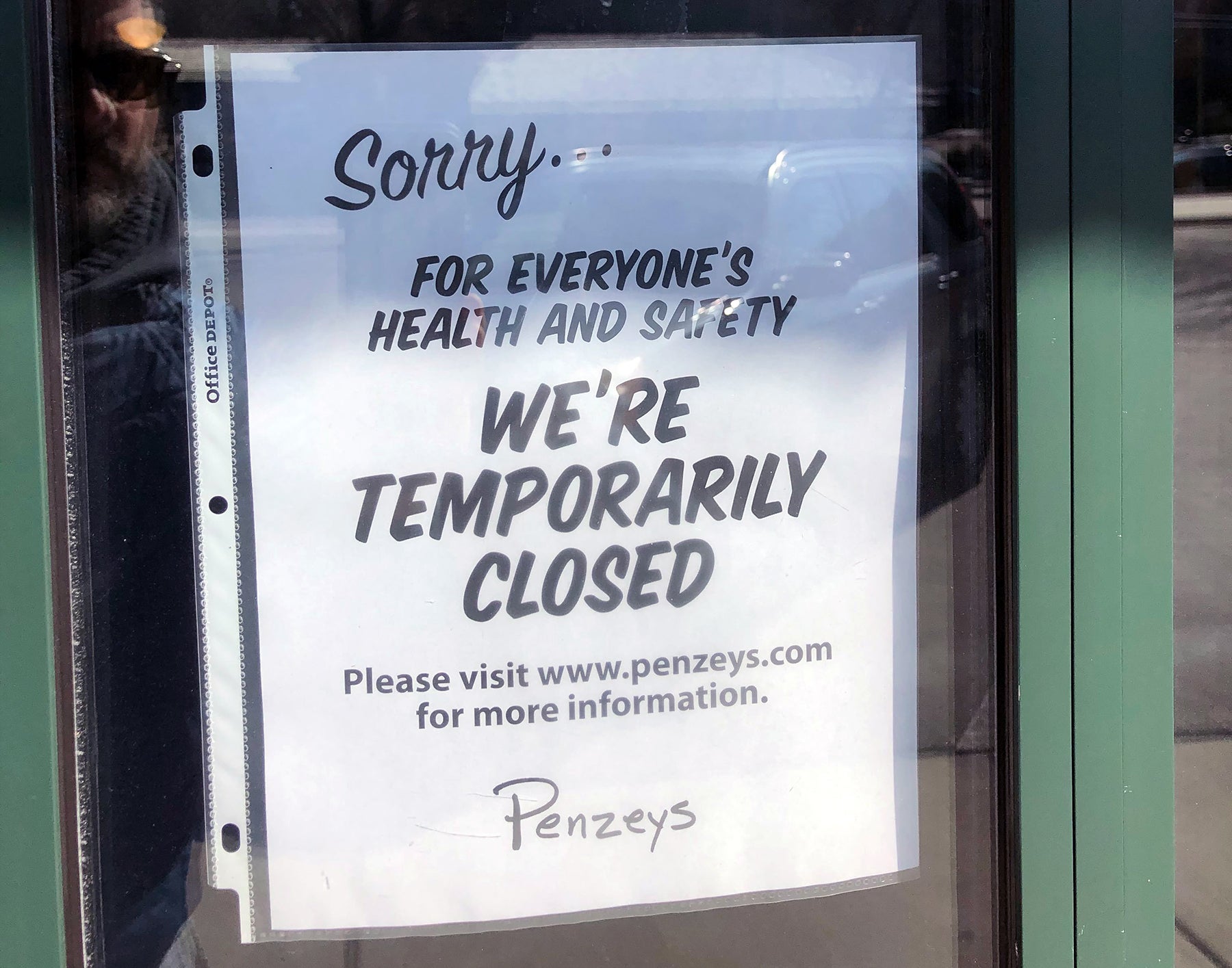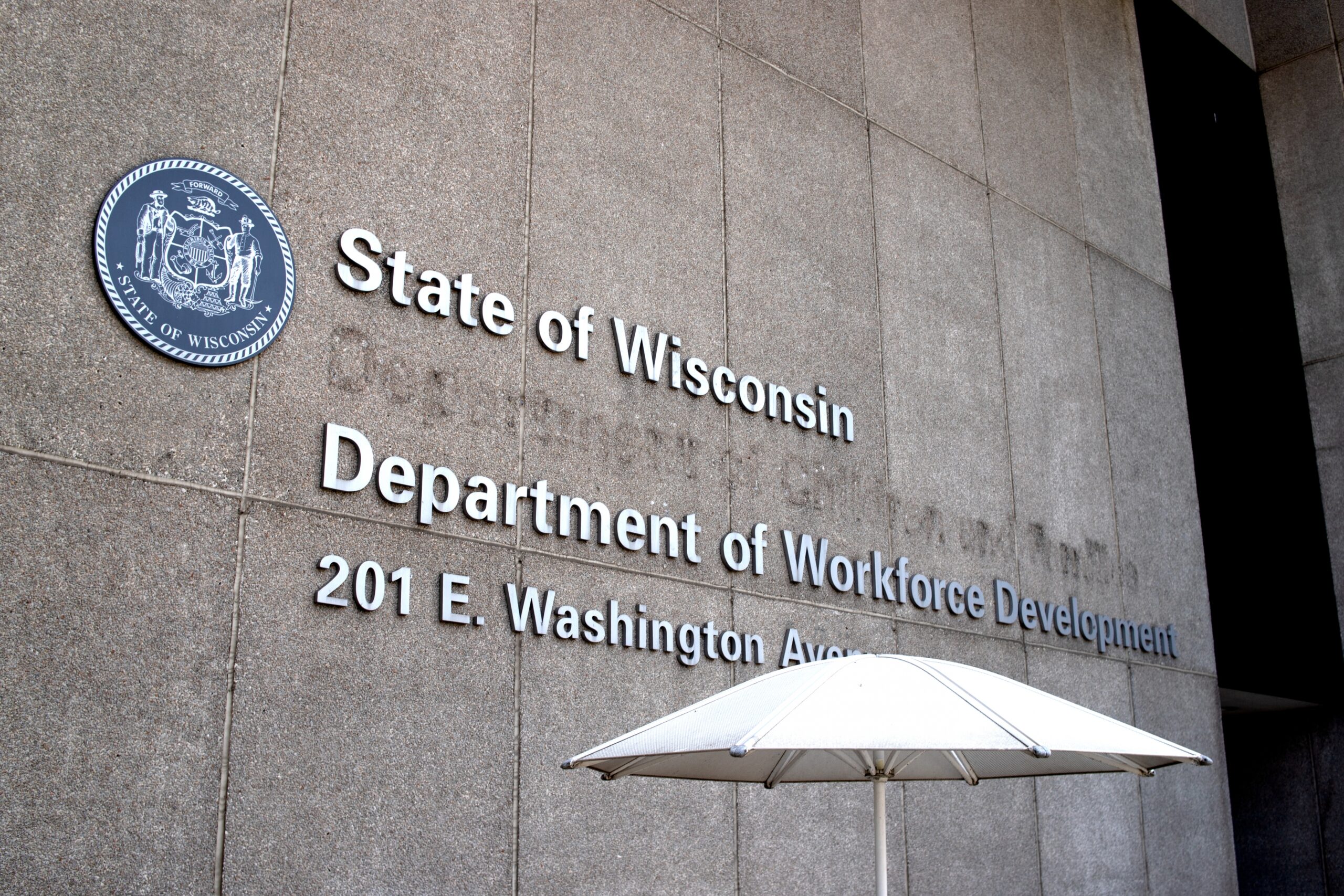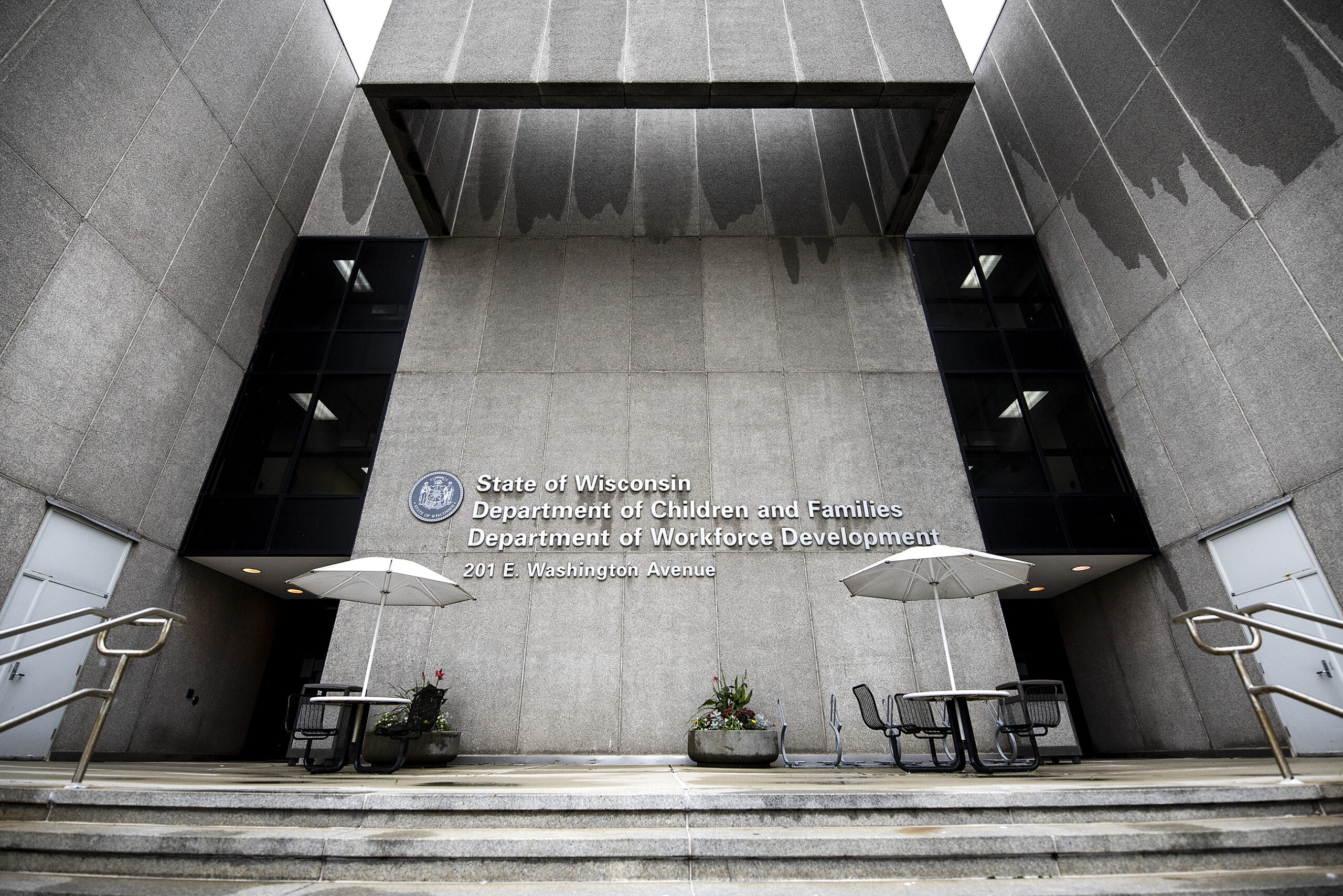Wisconsin workers and businesses reeled Wednesday from the economic fallout of the new coronavirus as many employers shut their doors under an order from the state that could last weeks or even longer.
The state’s order, which restricted gatherings of 10 or more people and banned table service at bars and restaurants throughout Wisconsin, aimed to slow the spread of COVID-19. But the lack of a clear end in sight, coupled with decreased demand at many businesses as more and more people stay home, led to immediate and devastating consequences for masses of workers.
In Madison, the Food Fight Restaurant group, which employed about 1,100 people until recently, had furloughed more than 800 workers, according to Elizabeth Garcia-Hall, the company’s hospitality director. That means the workers could come back to work if business picks up again. But until then, they’re not being paid.
News with a little more humanity
WPR’s “Wisconsin Today” newsletter keeps you connected to the state you love without feeling overwhelmed. No paywall. No agenda. No corporate filter.
“It’s devastating,” said Garcia-Hall. “This is about people feeding their families.”
Garcia-Hall said the restaurants had moved to a barebones staff to accommodate carryout orders, sometimes with one person handling the orders and another preparing them.
In La Crosse, bartender Adriane Alland said she’d heard about closures in other states so she wasn’t entirely caught off guard when she was told her bar was closing. But Alland said it was still scary finding out that she was, at least temporarily, out of work.
“I have money for the rest of my bills for this month, but if it lasts too far into April, I’m a little concerned about what I’m gonna do,” Alland said. “Probably filing for unemployment here soon.”
Gov. Tony Evers’ order also closed Wisconsin’s schools indefinitely, which had a ripple effect for people like Roberta Condon, a school bus driver in Portage.
“I just heard about it on the news,” Condon said. “You know, like everybody else. That school would be closed. And that meant that I would be out of work.”
Erin Rome, a Middleton attorney whose firm specializes in business law, said the firm’s small business clients faced a variety of issues. Some had employees working from home for the first time while others were looking at layoffs.
“In terms of the hospitality industry — hotels and things like that — people aren’t going anywhere, so for those industries in particular, it’s been pretty bad,” Rome said. “I would say bordering on devastating at this point.”
Rome said many small businesses don’t have enough cash on hand to weather a closure that lasts more than two to three weeks.
“It’s an extremely difficult situation, and it’s tough to see where this is going to go,” Rome said.
Rome said she’d also spent time learning the details of a bill working its way through Congress that aims to address the coronavirus.
That bill, which passed the U.S. Senate on a 90-8 vote Wednesday, would provide paid sick and family leave for some U.S. workers impacted by COVID-19, expand unemployment assistance, increase funding for food assistance and pay for free virus testing. The bill passed the U.S. House over the weekend, meaning it now heads to President Donald Trump’s desk.
At the state level, Evers said he would use an emergency order to waive work search requirements enforced by the state Department of Workforce Development. Evers said his order would also change rules for unemployment insurance benefits for workers affected by the economic fallout of the COVID-19 outbreak.
Madison labor attorney Victor Forberger said he thought the DWD could do more to relax requirements for workers, especially at a time when they’re being told to avoid large crowds.
“That’s just a small step,” Forberger said of the state’s actions so far. “I wish the department would be doing more in this situation.”
For example, the agency’s website states that people who are required to attend a “re-employment services session” at a public location must go, or they will be denied unemployment benefits.
Some people took matters into their own hands to help service industry workers, starting an online “tip jar” for Madison service industry workers who had been laid off. As of Wednesday evening, more than 1,000 people had signed up.
Garcia-Hall said she was hoping the state and federal governments would come up with relief plans to help businesses like hers weather widespread closures. Until then, she said Food Fight restaurants would stay open as long as they could to serve takeout and carryout.
“Our ‘Plan A’ is to keep serving our fans or our friends here in town and hope that as life shifts, this is something that people can become more used to,” Garcia-Hall said.
“The ‘Plan B,’ nobody wants to say out loud,” she said. “‘The ‘Plan B’ is that you close your doors.
Wisconsin Public Radio, © Copyright 2026, Board of Regents of the University of Wisconsin System and Wisconsin Educational Communications Board.







